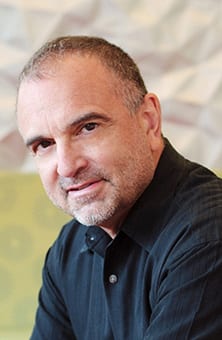“FDA anoints Gilead's remdesivir as the Covid-19 treatment winner, handing down full approval — despite some deep skepticism - Endpoints News” plus 1 more
“FDA anoints Gilead's remdesivir as the Covid-19 treatment winner, handing down full approval — despite some deep skepticism - Endpoints News” plus 1 more |
| Posted: 22 Oct 2020 02:09 PM PDT In January, when dozens of scientists rushed to start making a vaccine for the then-novel coronavirus, they were joined by an unlikely compatriot: Patrick Soon-Shiong, the billionaire doctor most famous for making big, controversial promises on cancer research. Soon-Shiong had spent the last 4 years on his "Cancer Moonshot," but part of his project meant buying a small Seattle biotech that specialized in making common-cold vectors, called adenoviruses, to train the immune system. The billionaire had been using those vectors for oncology, but the company had also developed vaccine candidates for H1N1, Lassa fever and other viruses. When the outbreak began, he pivoted. Keep reading Endpoints with a free subscriptionUnlock this story instantly and join 92,900+ biopharma pros reading Endpoints daily — and it's free.
|
| Posted: 29 Oct 2020 03:36 AM PDT Regeneron has revealed a second cut of data on its Covid-19 antibody cocktail in the outpatient setting — data that it has sent straight to the FDA to boost its emergency use authorization request. The new results reinforce what's reported from the same trial last month, Regeneron said, incorporating a total of 799 non-hospitalized patients with mild-to-moderate disease. REGN-COV2 reduced viral load and patient medical visits (anything ranging from hospitalizations, emergency room, urgent care visits to physician office and telemedicine visits), meeting all the key endpoints.  George Yancopoulos George YancopoulosNotably, there appears to be no significant difference between the high and low doses, spurring Regeneron to consider changing dosing in the ongoing trial given limited supply. Numbers on the key metric of symptom alleviation, however, are conspicuously missing. And that is leading analysts to ask questions about the drug's future as Regeneron squares up with Eli Lilly and a host of developers coming from behind. "We expect these results will justify an EUA, considering where that hurdle seems to be, but we would really like to have seen more definitive data on things such as quality of life and hospitalizations given how the benefit on symptoms seemed to fade with the expanded patient numbers," Baird analyst Brian Skorney wrote. Here's what we do know: REGN-COV2 induced, on average, a greater than 10-fold reduction in viral load compared to placebo, with a difference of 0.68 log10 copies/mL in the average daily change through day 7 for patients with high viral load. At the interim with 275 patients, the cohorts saw a 0.37 log10 reduction through day 7. Through 29 days, only 2.8% of patients taking the antibodies — whether it's the 8g or 2.4g doses — ended up having a medical visit compared to 6.5% on placebo, translating to a reduction of 57% (p=0.024). The effect was more pronounced among those with one or more risk factors, with treatment reducing medical visits by 72%. Spotlighting vulnerable groups has been a key talking point for Regeneron execs, who touted positive results from seronegative patients at the last readout. "We continue to see the strongest effects in patients who are most at risk for poor outcomes due to high viral load, ineffective antibody immune response at baseline, or pre-existing risk factors," CSO George Yancopoulos said in a statement. Skorney sees another encouraging sign in the trend to lower serious adverse events in the antibody arm. The rate of serious adverse events was 0.8% for high dose, 1.6% for low dose and 2.3% for placebo. Biren Amin of Jefferies similarly predicted that the results would cement Regeneron's EUA, noting that consistent viral load lowering is a promising signal of efficacy. But he singled out Regeneron's disclosure that, with no planned statistical analysis of alleviation, investigators also didn't observe "robust associations with viral load, serology status or treatment." "The discrepancy between a lack of symptom alleviation and reduced medical visits in the latest data cut is puzzling especially in light of LY-CoV555 data where it has shown lower symptoms, lower viral load, and lower hospitalizations," he wrote. "The LLY data has also shown reductions in hospitalizations in high-risk groups of 71%." Regeneron and Eli Lilly are the first companies to seek authorization for their Covid-19 antibodies, both focusing initially on the outpatient setting. While the first rounds of data on REGN-COV2 and Lilly's single antibody drew mixed reactions, Lilly managed to impress with a cocktail combining two different antibodies from Canada's AbCellera (bamlanivimab) and Shanghai-based biotech Junshi Biosciences (etesevimab). Having scored a $450 million contract from Operation Warp Speed to ramp up manufacturing, Regeneron has other trials underway to test its drug among hospitalized patients — a setting where Lilly has recently contended with a flop — and for prevention. Other players like GlaxoSmithKline-backed Vir and Adagio are catching up. President Donald Trump, who took REGN-COV2, has touted both as "cures" and promised a quick OK in early October. The FDA has yet to make a decision. For a look at all Endpoints News coronavirus stories, check out our special news channel. |
| You are subscribed to email updates from "acute respiratory distress syndrome treatment,acute respiratory failure treatment,all star" - Google News. To stop receiving these emails, you may unsubscribe now. | Email delivery powered by Google |
| Google, 1600 Amphitheatre Parkway, Mountain View, CA 94043, United States | |
Comments
Post a Comment